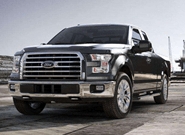Analysis

April 2, 2019
Weak Auto Sales Report for March
Written by Sandy Williams
Major U.S. automakers reported weaker sales in March, in line with analysts’ forecasts. Cox Automotive expects auto sales volume for the month to drop 7 percent year-over-year to 1.547 million. The seasonally adjusted annual rate is forecast at 16.5 million vehicles.
“The year has started relatively soft for new-vehicle sales,” notes Jonathan Smoke, chief economist for Cox Automotive. “January was a combination of factors, some of which were related to the broader economy. The government shutdown, decline in consumer confidence, and the polar vortex all detracted from the economy and new-vehicle sales in January. We had somewhat better weather in February in most of the U.S., an open government and a rebound in confidence, yet new-vehicle sales did not improve. Now we know that consumer confidence again moved down in March.”

“We are bullish on pickups and expect to gain sales momentum throughout the year,” said Kurt McNeil, U.S. vice president of sales operations at GM. “We are installing capacity in Flint to build more HD pickups in total, more crew cab models, more dualies and diesel models, too, all in response to dealer and customer demand.”
Toyota Motor North America reported sales of 214,947 vehicles, a decrease of 3.5 percent versus March 2018. For the quarter, Toyota sold 543,714 vehicles, a 5.0 percent increase over the first quarter of 2018. Light trucks and SUVs continue to dominate sales, said Toyota, but sedans remain an important part of the company’s portfolio.
Fiat Chrysler Automobiles reported that sales slid 7.0 percent in March with delivery of 200,307 vehicles. Quarterly sales were down 3.0 percent.
“The industry had a tough first quarter but with spring finally starting to show its face and continued strong economic indicators such as a boost in housing sales, lower lending rates and a strong labor market, we are confident that new vehicle sales demand will strengthen going forward,” said Reid Bigland, FCA’s U.S. head of sales.
Autotrade executive analyst Michelle Krebs offered a caveat to such economic optimism. “The economy is not as strong as it was a year ago,” said Krebs in a comment to Bloomberg. “Last year, we had the euphoria over tax reform, and now we have the reality of that.”






